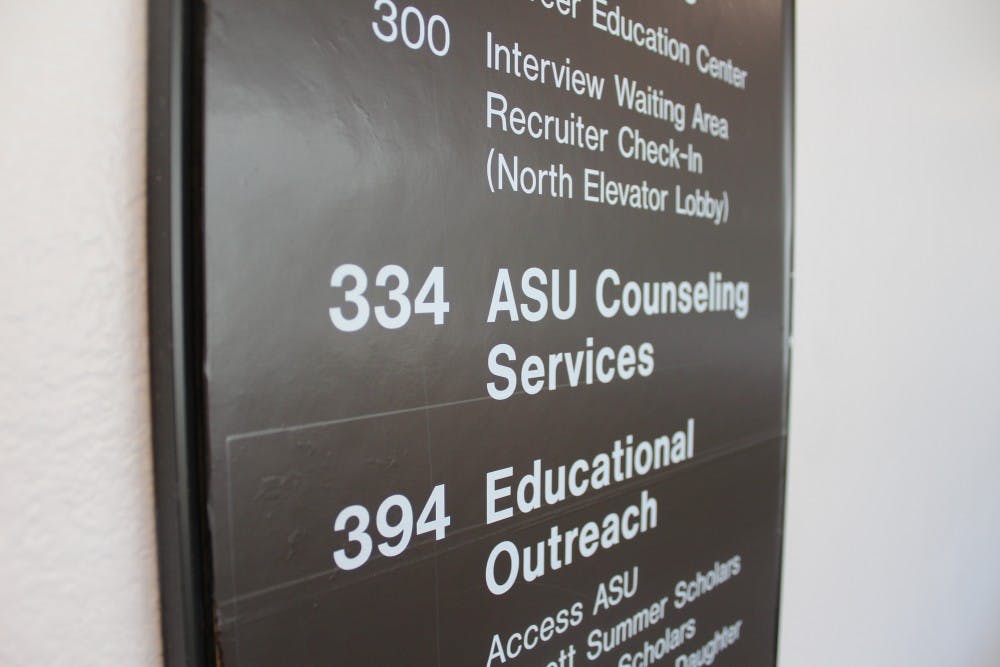Suicide on college campuses is often more prevalent than expected. When students feel overwhelmed by the pressures of their course load, work, and extracurricular commitments, it can take a toll on their mental health.
ASU has multiple resources on campus for students who need support, but they need to be better advertised.
While some universities publish their suicide statistics, ASU does not, which can make it hard for people to be aware of just how significant the problem is.
Aaron Krasnow, the associate vice president and director of ASU Counseling Services, said in a recent State Press article that publishing suicide statistics might have harmful impacts.
"We’re not focused on reporting the numbers to the public because they don’t give any information about the context for any suicide," Krasnow said. "Reporting these numbers might be harmful because it highlights the death and not what can be done to help people.”
However, it is important that students and faculty are aware of how common suicide is. Students should know that they are not alone, and that there is plenty of help available.
According to the Neumann National Data on Campus Suicide and Depression, the number of teen and young adult suicides is greater than the total number of teen and young adult deaths resulting from medical illness.
With national statistics as severe as these, ASU should take initiative to ensure that students are aware of the problem as well as the possible solutions.
"We continually add resources to our suite of options at ASU," Krasnow said. "While more resources are always welcome, we are looking at ways to be most effective and reach the largest number of people."
Some of the resources at ASU include the counseling programs, the support effort of Devils 4 Devils, and a newly launched program called TAO Connect.
According to College Degree Search, nearly half of students nationwide who seriously considered attempting suicide did not tell anyone.
An ASU survey shows that 40.9 percent of student respondents reportedly felt too depressed to function, 10.7 percent reportedly have seriously considered suicide and 2 percent reportedly attempted suicide.
"Asking for help is acknowledging that the pain has reached a point where you can’t solve this on your own," Krasnow said. "Everyone has been in a circumstance where their pain overwhelms their ability to function. That’s why we’re here. We don’t want anyone to feel alone in their pain."
While some of ASU's resources are active only Monday through Friday, there is an ASU crisis line dedicated to providing students with immediate access to help at any time.
"Suicide prevention is about creating a widespread community whereby people who are struggling and those around them know the resources to get help both before they are in crisis and if they are in crisis," Krasnow said.
ASU Counseling Services can be reached at 480-965-6146 for the Tempe campus, 602-496-1155 for downtown Phoenix, 480-727-1255 for Polytechnic and 602-543-8125 for West campus during business hours. Counseling services also has a 24-hour crisis line at 480-921-1006.
As one of the nation’s largest public universities, ASU has the capability and the responsibility to be an active leader in the fight for better student mental health. In order for students to know that there is plenty of support available for them, ASU must advertise their resources more.
Reach the columnist at adunn11@asu.edu or follow @adrienne_dunn on Twitter.
Editor’s note: The opinions presented in this column are the author’s and do not imply any endorsement from The State Press or its editors.
Want to join the conversation? Send an email to opiniondesk.statepress@gmail.com. Keep letters under 500 words and be sure to include your university affiliation. Anonymity will not be granted.
Like The State Press on Facebook and follow @statepress on Twitter.




